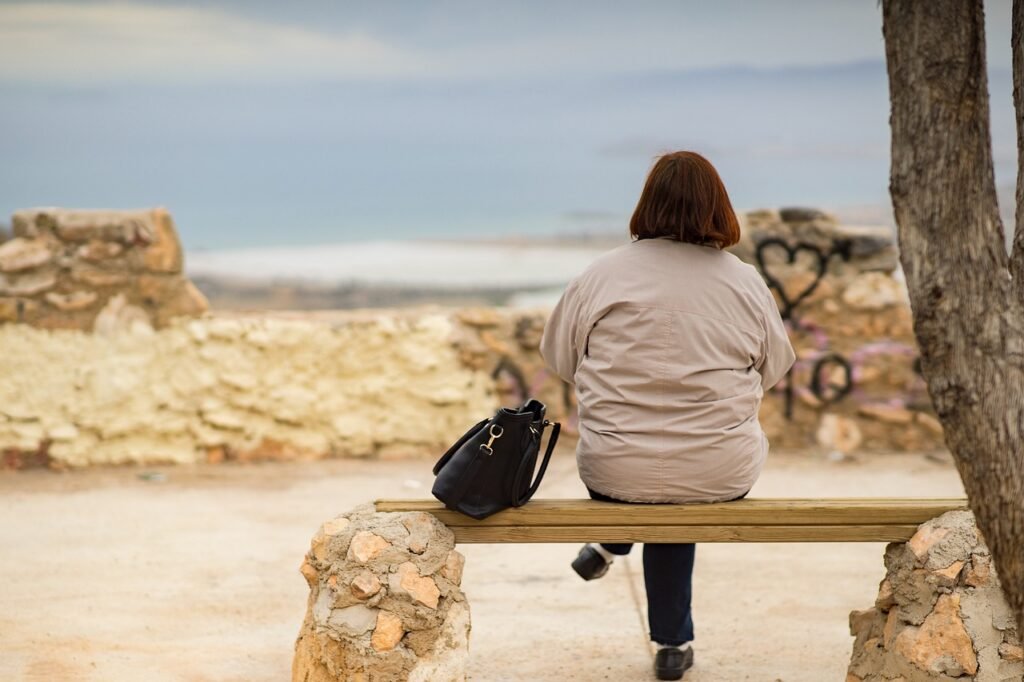Are you a senior citizen looking to embark on exciting travel adventures? Look no further! In this article, we have curated a comprehensive list of precautions and health tips specifically tailored to older adults like you. From effectively managing your medications while on the go to considering mobility issues, we’ve got you covered. So sit back, relax, and get ready to embark on your next travel adventure with confidence and peace of mind. Let’s make your golden years truly unforgettable!
Medication Management
Consulting with a healthcare professional
When planning a trip, it is essential to consult with your healthcare professional regarding your medications. They can advise you on any precautions you need to take and provide you with enough medication for the duration of your trip. Make sure to discuss the time zone changes and how they may affect your medication schedule. It is also important to inquire about any potential interactions between your medications and travel vaccinations or any over-the-counter medications you may need while traveling.
Organizing medications
To ensure smooth medication management during your trip, it is crucial to organize your medications properly. Consider using a pill organizer or a medication dispenser for easy access and to keep track of your doses. Additionally, label your medications clearly and bring along a list that includes the names of your medications, dosages, and any special instructions. This way, you can easily communicate with healthcare professionals or pharmacists if needed.
Carrying necessary documents
As a senior traveler, it is recommended to keep your medications in their original packaging, along with the prescription labels. This will help prevent any misunderstandings or potential issues at security checkpoints and customs. Additionally, carry a copy of your prescriptions, a list of emergency contacts, and your healthcare professional’s contact information. In case of any medical emergencies while traveling, having these documents readily available can be extremely helpful.
Health Check-Up
Scheduling a pre-travel check-up
Before embarking on your travel adventure, it is advisable to schedule a pre-travel check-up with your healthcare professional. During this visit, discuss your destination, planned activities, and any health concerns you may have. Your healthcare professional will ensure that you are physically fit for travel and can provide valuable advice on specific health precautions you should take based on your individual needs.
Updating vaccinations
Vaccinations are an essential part of maintaining good health while traveling, especially for older adults. Make sure to review your vaccination records and discuss with your healthcare professional if any additional vaccinations are needed for the destination you are visiting. Vaccinations such as influenza, pneumonia, and hepatitis A and B are commonly recommended for senior travelers.
Discussing medical history with the doctor
It is crucial to have an open and honest discussion with your healthcare professional about your medical history before traveling. Provide them with a detailed overview of any chronic conditions you may have, allergies, recent surgeries, or any other pertinent medical information. This will help your healthcare professional provide appropriate advice and ensure that you have any necessary medical supplies or documents for your journey.
Choosing the Right Destination

Considering accessibility and infrastructure
When selecting a travel destination, consider the accessibility and infrastructure of the location. Look for places that have well-maintained sidewalks, ramps, and wheelchair accessibility if necessary. It is also important to consider the availability of public transportation or easy access to transportation options, as this can greatly impact your mobility during the trip.
Researching healthcare facilities
Before finalizing your destination, it is advisable to research the availability and quality of healthcare facilities in the area. Look for nearby hospitals, clinics, and pharmacies that cater to the needs of senior travelers. Having this information in advance can be helpful in case of any unforeseen medical situations during your trip.
Climate and altitude considerations
Climate and altitude can have a significant impact on your health, especially as a senior traveler. Research the climate and altitude of your destination to ensure that it aligns with your health needs. Extreme temperatures or high altitudes may worsen certain medical conditions or cause discomfort. Consider adjusting your travel plans accordingly to ensure a safe and comfortable journey.
Travel Insurance
Understanding coverage options
Travel insurance is a vital aspect of any travel plan, especially for senior travelers. It provides financial protection and peace of mind in case of unexpected events such as medical emergencies, trip cancellations, or lost luggage. Understand the coverage options available to you, including medical coverage, trip cancellation/interruption coverage, and baggage coverage. Review the terms and conditions carefully before purchasing a policy.
Finding a policy that suits senior needs
When selecting travel insurance, it is important to find a policy that specifically suits the needs of older adults. Look for policies that offer coverage for pre-existing medical conditions and have higher age limits. Additionally, consider policies that provide coverage for emergency medical evacuation, as this can be crucial if you require medical transportation back home.
Emergency medical coverage
Ensure that your travel insurance policy includes comprehensive emergency medical coverage. This should include coverage for hospital stays, doctor visits, medications, and any necessary medical procedures. It is also essential to understand the steps you need to take in case of a medical emergency, such as contacting the insurance provider or seeking assistance from local emergency services.
Transportation

Choosing the most suitable mode of transportation
When planning your trip, consider the mode of transportation that best suits your needs as a senior traveler. Evaluate the pros and cons of air travel, train travel, or cruises, depending on your destination and personal preferences. Consider factors such as comfort, convenience, and accessibility when making your decision.
Booking direct flights or non-stop routes
If you choose air travel as your mode of transportation, consider booking direct flights or non-stop routes whenever possible. This minimizes the chances of flight delays, connections, or long layovers, reducing the overall stress of travel. Direct flights also allow for easier navigation through airports, providing more comfort and convenience for senior travelers.
Requesting special assistance
When making travel arrangements, don’t hesitate to request special assistance if needed. Many airlines and other transportation providers offer services such as wheelchair assistance, priority boarding, or additional legroom. Inform the airline or transportation company about your specific needs in advance, so they can make the necessary arrangements to ensure a smooth journey.
Accommodation
Seeking senior-friendly accommodations
Choose accommodations that cater to the needs of senior travelers. Look for hotels, resorts, or rental properties that offer amenities such as elevators, accessible rooms, and grab bars in bathrooms. Research online reviews or speak to a travel agent who specializes in senior travel to find accommodations that prioritize comfort, safety, and accessibility.
Requesting accessible rooms
When making accommodation reservations, be sure to request accessible rooms if required. These rooms often have wider doorways, grab bars in bathrooms, and other features that make them more suitable for senior travelers with mobility concerns. It is advisable to confirm your specific requirements with the hotel or rental property in advance to ensure they can accommodate your needs.
Ensuring safety measures
Safety should be a top priority when selecting accommodation as a senior traveler. Look for accommodations that have safety features such as proper lighting, security measures, and emergency contacts readily available. Additionally, familiarize yourself with the fire evacuation plan and the location of emergency exits in your accommodation.
Packing Essentials

Carrying necessary medications and prescriptions
When packing for your trip, ensure that you have an ample supply of all necessary medications. Pack them in your carry-on luggage to ensure they are easily accessible during your journey. It is also recommended to carry a copy of your prescriptions and a list of medications, including generic names, dosages, and any special instructions. In case of lost or stolen medication, having this information can be invaluable.
Bringing comfortable and supportive footwear
Comfortable and supportive footwear is essential for senior travelers, as it helps prevent foot pain and discomfort during long periods of walking or standing. Pack shoes that have proper arch support, cushioning, and a sturdy sole. It is advisable to break in new shoes before your trip to avoid blisters or other foot-related issues.
Packing lightweight clothing
Opt for lightweight and breathable clothing when packing for your trip. This type of clothing is comfortable and allows for easy layering to accommodate changes in weather. Consider packing versatile pieces that can be mixed and matched to create different outfits. Don’t forget to pack a hat and sunscreen to protect yourself from the sun’s harmful rays.
Hydration and Nutrition
Staying hydrated during the trip
Staying hydrated is crucial for your overall well-being, especially during travel. Carry a reusable water bottle and make a conscious effort to drink water regularly throughout your journey. If you are unsure about the quality of tap water at your destination, opt for bottled water instead. Additionally, consider consuming hydrating foods such as fruits and vegetables to supplement your hydration efforts.
Choosing healthy food options
Maintaining a healthy diet while traveling is important for your energy levels and overall health. Seek out food options that offer a balance of nutrients, including fruits, vegetables, whole grains, and lean proteins. Prioritize freshly prepared meals and avoid excessive consumption of processed or fast foods. If you have specific dietary restrictions, communicate them to restaurant staff or consider self-catering options.
Managing dietary restrictions
If you have dietary restrictions, it is crucial to plan ahead for meals during your trip. Research restaurants or destinations that cater to your dietary needs and offer suitable options. Consider carrying snacks or food items that are safe and compliant with your dietary requirements, especially if you are traveling to a location where suitable food options may be limited.
Mobility Considerations
Planning for mobility aids
If you require mobility aids such as walkers, canes, or wheelchairs, it is essential to plan accordingly. Determine if your destination provides rental services for mobility aids or if you need to bring your own. Research the accessibility of public transportation, attractions, and accommodation to ensure they can accommodate your mobility needs.
Researching accessibility at attractions
When planning your activities and sightseeing, research the accessibility of the attractions you wish to visit. Some destinations may have limited accessibility due to certain historical sites or natural landscapes. Look for alternative activities or attractions that are more easily accessible, ensuring that you can fully enjoy your trip.
Making use of available resources
Take advantage of available resources and services to enhance your mobility during your trip. Many tourist destinations offer specialized transportation services or guided tours designed for senior travelers. Additionally, consider utilizing apps or websites that provide information on accessible routes, public transportation options, or wheelchair-friendly amenities.
Keeping Active
Engaging in low-impact exercises
Staying active is important for maintaining overall health and well-being, even while traveling. Engage in low-impact exercises such as gentle walks, water aerobics, or yoga to keep your body moving. Many destinations offer senior-friendly exercise classes or walking trails that provide opportunities for physical activity while exploring the local surroundings.
Taking breaks and using rest areas
Recognize the importance of taking breaks during your travels, especially if you have limited mobility or medical conditions. Plan your itinerary with regular rest periods and utilize rest areas or benches available at attractions or public spaces. Taking breaks allows you to recharge, avoid exhaustion, and fully enjoy your travel experience.
Exploring local walking trails
Many destinations offer picturesque walking trails that allow you to immerse yourself in nature while staying active. Research local walking trails that match your fitness level and preferences. These trails often provide a safe and scenic environment to enjoy leisurely walks or more challenging hikes, depending on your abilities and interests.
By following these comprehensive tips, senior travelers can ensure a safe and enjoyable journey. Prioritizing medication management, consulting with healthcare professionals, and considering individual needs will contribute to a stress-free and fulfilling travel experience. Remember to plan ahead, stay active, and take care of your health while exploring the wonders of the world.
